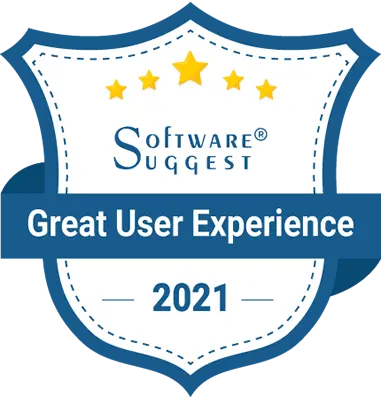Call/WhatsApp : +1 (786) 924-0778
In today's fast-paced legal industry, efficiency is key for law firms to remain competitive. tools, also known as legal billing software, has become an essential tool for legal practitioners, helping them manage their time, clients, cases, and finances with ease. From solo attorneys to large law firms, the need to accurately track billable hours, manage invoices, and ensure that clients are charged correctly has never been greater. tools simplifies these tasks, saving time and reducing the likelihood of human errors while enhancing overall productivity.
Know more about this tool
Tools is a specialized software solution designed to automate the billing processes in law firms. It typically includes features that allow attorneys to track billable hours, generate invoices, manage client payments, and keep a detailed record of expenses associated with a case. Many legal billing software solutions also integrate with other practice management tools, such as case management, document storage, and accounting systems.
The goal of legal billing software is to reduce the administrative burden on lawyers and legal staff, enabling them to focus more on their cases and clients. Whether you're managing hourly rates, flat fees, or contingency billing, tools ensures that time and expenses are accurately tracked and converted into clear and professional invoices.
Key Features
One of the core features of tools is time tracking. Lawyers often bill clients based on the number of hours worked on a case. Without an efficient time tracking system, it can be difficult to keep accurate records of billable hours. tools provides real-time tracking of work hours, allowing attorneys to log time spent on various tasks directly from their computer or mobile device. This helps ensure that no billable work is left unrecorded, thereby maximizing revenue.
Once billable hours are tracked, tools automatically generates invoices based on the recorded data. This eliminates the need to manually prepare invoices, which can be time-consuming and prone to mistakes. Automated invoicing ensures that invoices are generated quickly, and the software can be configured to send invoices directly to clients. Many platforms also provide customizable invoice templates, ensuring that law firms can maintain a consistent and professional appearance in their billing documents.
Lawyers often incur various expenses while working on a case, such as filing fees, expert witness fees, travel expenses, and more. Legal billing software allows firms to easily track these expenses and associate them with specific cases or clients. This ensures that all costs are accurately reflected in the final bill, reducing the likelihood of missed or underreported expenses.
Efficient client management is essential for law firms, and tools helps streamline this process. It enables lawyers to keep track of all client interactions, case history, and billing details in one place. Having a centralized client database simplifies the management of ongoing cases and makes it easier to access important information when needed.
Law firms may use different billing methods depending on the type of case and the client. This tools provides flexible billing options, including hourly billing, flat-fee billing, and contingency billing. This flexibility allows law firms to tailor their billing structure to meet the specific needs of each client. Additionally, many software platforms offer payment plans and allow clients to make partial payments, helping firms manage cash flow more effectively.
Tools often integrates with popular accounting systems such as QuickBooks or Xero. This integration allows for seamless data sharing between billing and accounting systems, reducing the need for manual data entry and helping to ensure that financial records are accurate and up to date. Having integrated systems also simplifies tax preparation and financial reporting.
To further streamline the billing process, many tools platforms offer online payment processing. Clients can pay invoices directly through the software using a variety of payment methods, including credit cards, ACH transfers, and eChecks. This feature improves cash flow by making it easier and more convenient for clients to pay their bills on time.
Law firms are required to adhere to specific legal billing guidelines, particularly when dealing with insurance companies or government clients. Legal billing software helps ensure compliance with these guidelines by automatically formatting invoices to meet industry standards, such as LEDES (Legal Electronic Data Exchange Standard) billing format. This reduces the risk of rejected invoices and delays in payment.
Understanding the financial health of a law firm is critical for long-term success. Tools typically includes robust reporting and analytics tools that provide insights into a firm’s revenue, expenses, and profitability. Lawyers can generate detailed reports on billable hours, outstanding invoices, and client payments. These insights allow law firms to make data-driven decisions and identify areas for improvement.
Benefits
Implementing tools offers numerous benefits for law firms, including:

Bill safely from anyplace, any time
Make and endorse bills in a hurry, naturally apply interest to late installments, and send charges electronically through our safe customer entryway, Clio Connect. Getting bills out quick means getting compensated faster.
Decrease time spent charging
Set up mechanized installment plans. Make gathering extraordinary equilibriums and renewing trust accounts simple with repeating charge card installments—decreasing assortment time and expanding income.
The brainchild of Lawyer Software and Services was started with mission to change the game of invoicing for all: Small Business, entreprises and Freelancers. The customizable online invoice and business management tool helps you get your business aligned the right way.
Lawyer billing software has become an indispensable tool for modern law firms, offering a wide range of features that streamline billing, time tracking, and financial management. By implementing a legal billing solution, law firms can reduce administrative burdens, improve accuracy, and enhance client satisfaction. As the legal industry continues to evolve, adopting the right billing software can provide law firms with a competitive edge, helping them operate more efficiently and profitably.




Our clients' success stories speak volumes. Their testimonials highlight our dedication to delivering quality, reliability, and affordability. With a proven track record of satisfied customers across multiple industries, you can trust that our software services are not only best-in-class but also designed to fit your budget without compromising on quality. Let us help you achieve your business goals affordably and efficiently!